The "Regional High-Level Summit for University Presidents and Senior Policy Makers on Creating an Enabling Innovation Environment (EIE) for Intellectual Property and Technology" was successfully held from November 25 to 27, 2019 in Osaka - Japan by the World Intellectual Property Organization (Regional Bureau for Asia and the Pacific - ASPAC) in cooperation with the Osaka University and with the assistance of Japan Patent Office (JPO). This is an activity within the framework of the EIE project for countries in the Asia - Pacific including Malaysia, Philippines, Sri Lanka, Thailand and Vietnam.
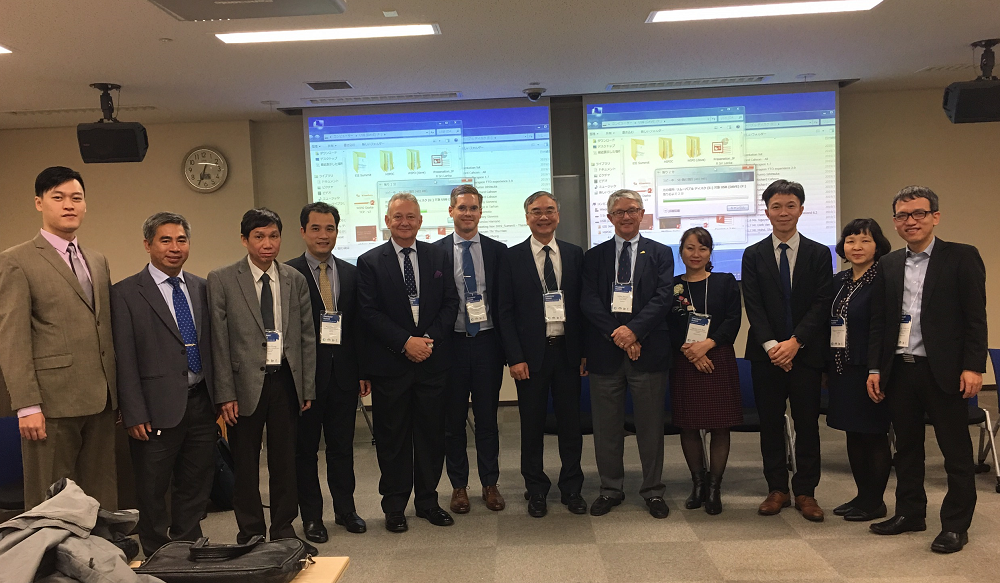
Vietnamese delegation at the conference
In the opening addresses, Mr. David Simmons, Counsellor of ASPAC emphasized the importance of IP-Hub Network under the EIE project in ASEAN region in promoting intellectual property (IP) activities and Technology transfer at research institutes and universities.
Ms. Yumiko Hamano (IP Consultant Partner, ET Cube International, Echenevex, France/WIPO expert) summarized the establishment and development process of the EIE project (IP-Hub Network) and highlighted the results that the IP-Hub Network has achieved since its inception.
In the opening speech, Mr. Akihisa Matsuno, Professor / Dean, Osaka School of International Public Policy (OSIPP), Osaka University told the story of Osaka's development history from a commercial center of Japan to the main industrial and port hub - the heart of the Kansai metropolitan area today.
In the welcome addresses, Mr. Manabu Niki, Director of the Regional Cooperation Office, Japan Patent Office, Tokyo stressed that we are living in a knowledge-driven economy, in which ideas and innovation have become the main resources to boost economic development and competitive advantages.
In the first session, a brief overview of the Japan - WIPO Funds in Trust (FIT) was presented by Mr. Fumio Ishitsuka (Program Officer, PCT International Cooperation Division, Cooperation Support Section, WIPO, Geneva).
The main content of the conference started with the presentation of Mr. Richard S. Cahoon, President Bio Property Strategy Group Inc./ Adjunct Professor International Program, Cornell University, New York, USA/WIPO expert. In this session, the bigger picture of Technology Transfer was highlighted to provide the information of the Enabling Innovation Environment (EIE) framework approach and the overview of what should be discussed at the summit, including: What is Technology Transfer? Why is it important to the university? Why are we here? What is the universities unique societal role in innovation “ecosystem”?
The next topic was: History and evolution of university IP-based technology transfer - the relationship with the university mission and societal impact.
Followed presentation was “Benefits of IP-based technology transfer for the university, its stakeholders, and society at large” by Mr. Ashley Stevens, International Consultant, President, Focus IP Group, LLC, USA.
The summit continued by a Panel Session: Importance of IP Policy and its key elements; Tech for the public good, not making money; What could each country do differently if it could it do it over again?; What might the future hold?; The roles that professional networks played in various countries and relevant international experiences.
The next discussion was a presentation of “Hubs” to present on country updates and perspectives. In this session, representatives of the project “Hubs” will present from their national perspectives on the project, including updates on developments in their country, and issues faced by Spokes in each country. The representative panelists for Viet Nam was Ms. Nguyen Thi Thu Hien, Deputy Director, IP Information Center, Intellectual Property Office of Viet Nam (IP Viet Nam), EIE Project Hub – Viet Nam. In her speech, Ms. Hien provided information on activities that have been carried out within the framework of the EIE project in Vietnam and the action plan for 2020 and the following period.
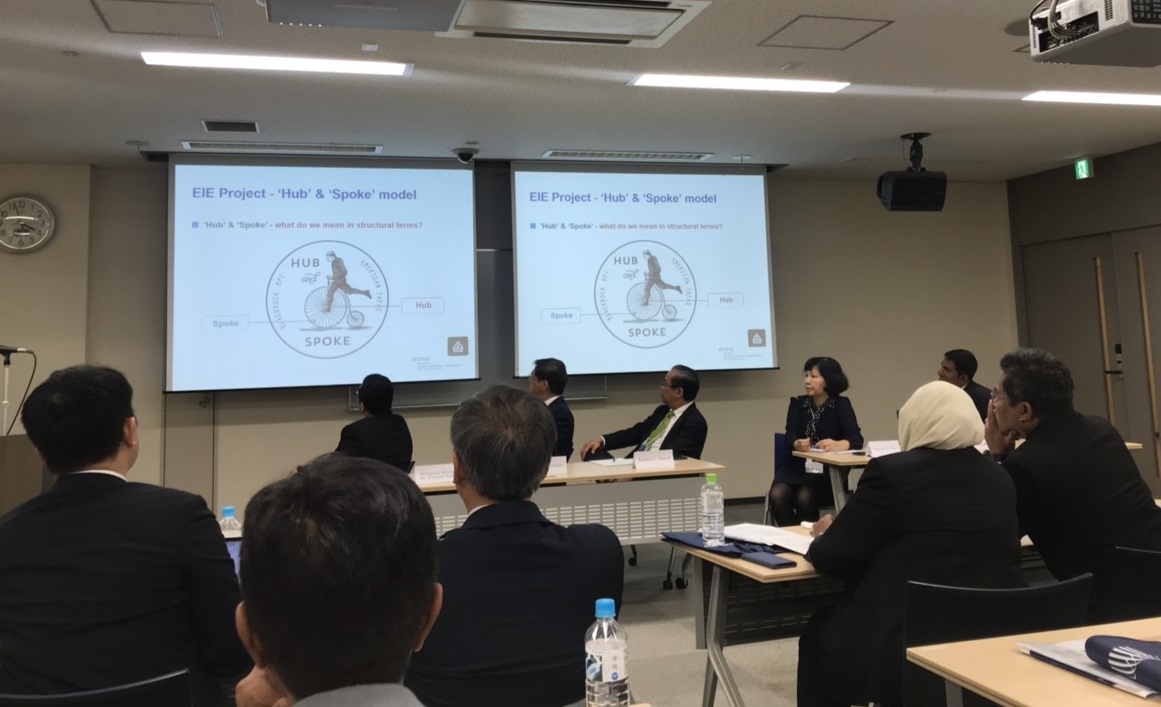
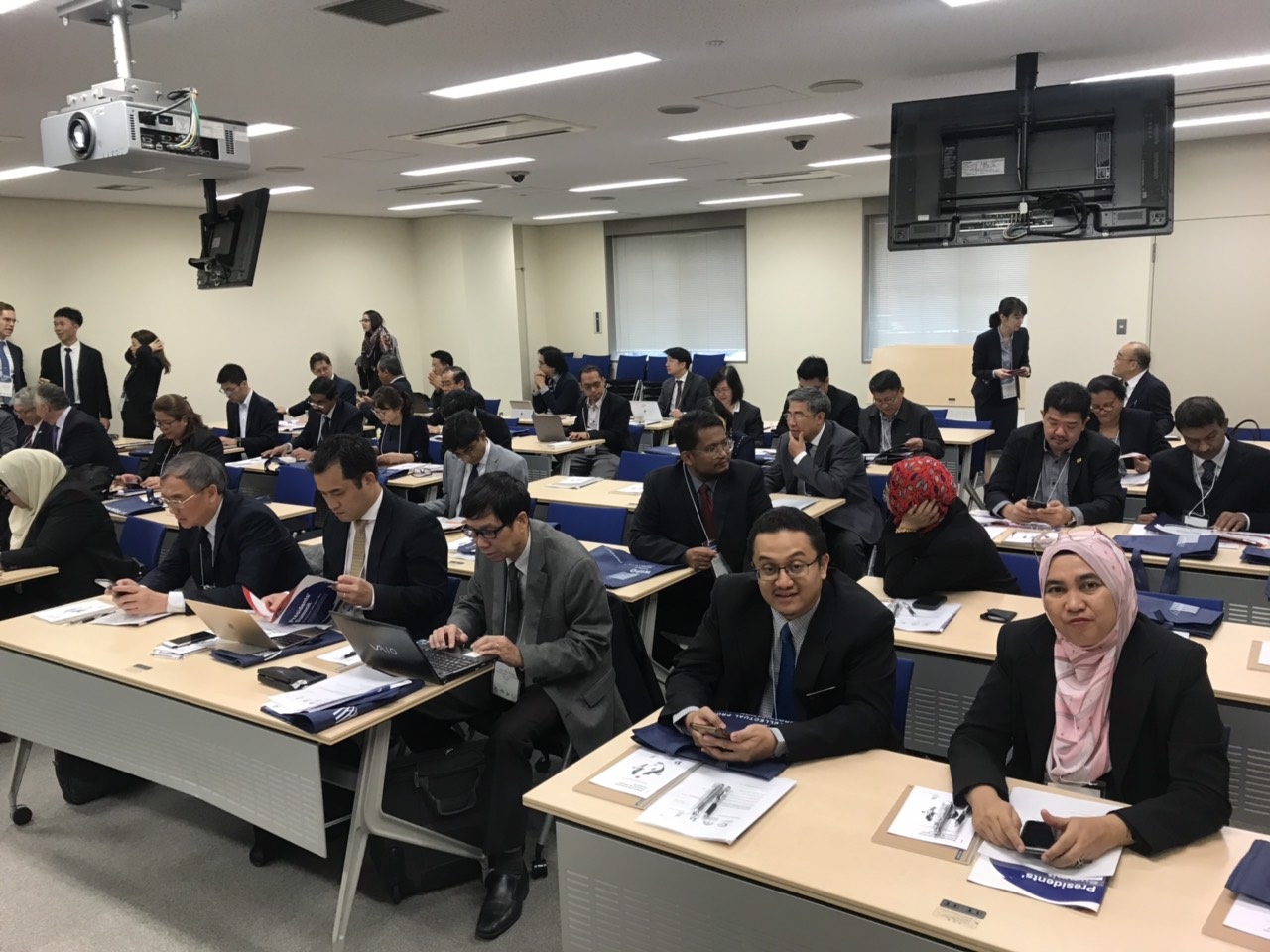
Panel Session
Panel Session continued with the EIE Project Updates – representatives of “Spokes” to present on institution updates and their needs, in which they provided comments on their experiences and journey in the project, issues they faced and updated on developments in supporting Technology Transfer initiatives from institution. The representative panelists for Viet Nam was Mr. Dinh Van Phong, Professor / Vice President, Hanoi University of Science and Technology (HUST).
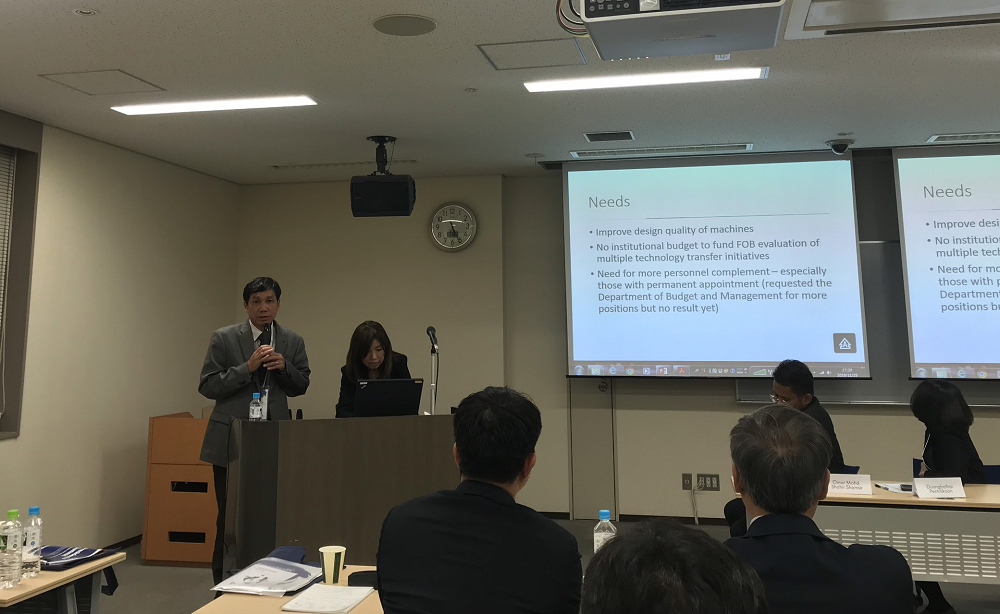
Mr. Dinh Van Phong, Professor / Vice President, Hanoi University of Science and Technology delivered speech at the Conference
The second working day started with a presentation by Mr. Iwao Yoshino, CEO, Microwave Chemical Co., Ltd., Osaka on the participation of an innovative company with engagement in the area of university IP/technology and their perspectives/experiences on commercialization of IP, technology marketing, and collaboration with universities.
This was followed by a discussion on Developing and Supporting Associations of Technology Transfer Professions & Quantitate Assessment by Mr Ashley Stevens.
In the context of the EIE project for supporting IP-based technology transfer, the speaker provided: Information on the value that in-country associations have in supporting the development of an ecosystem of technology transfer; The value of capturing information and metrics regarding the operations technology transfer offices for learning how to support their growth; and How the EIE project will support the development IP-based technology transfer through its project work with associations and supporting metrics assessment in each EIE country.
Next was a presentation on: Essential Elements of a Sustainable University IP and Technology Transfer Function. In the context of university focused IP-based technology transfer, the speakers discussed contemporary approaches to Governance, including: The role of the University President; IP Policy Issues (academic freedom and publication, personnel and activities covered, ownership, commercial rights granting philosophy); Profit vs technology dissemination and public good; Conflict of Interest and Conflict of Commitment Policies; Relationships with industry.
After that, the presentation on: Collaboration with Industries and University and Contribution to the society was presented by Mr. Jun Sugiura, Professor, Graduate School of Intellectual Property, Osaka Institute of Technology (OIT), Osaka.
On the topic of Important Issues Regarding Technology Transfer Office (TTO) Funding and Operation, the speakers discussed the main elements of supporting sustainable technology transfer stability in universities, including: The importance of TTO Director full-time, skills and requirements for human resources; TTO - funding, investment, long-term sustainability, benefit sharing; Granting funding for invention; Managing faculty expectations; Supervision of industrial property representatives (if hiring services) and patent filing strategy (covering the global scope); Communicating values to stakeholders (including impact / finance, economic development, public relations).
During the panel session on the Overview of Standard University IP / Technology Transfer and Commercialization Process across different regions, the participants of the seminar provided details on the approach and practices of general TTO in their country, noting their experiences and potential differences in practice.
In the next session, a WIPO officer shared information on WIPO’s IP Advantage database and case studies, which highlights an array of real examples on IP protection (patents, trade marks, and industrial designs), management and exploitation. This is an extensive source of information and best practices for Small and Medium Enterprises (SMEs) dealing with IP.
After that was the panel session with the subject: University IP-based Start-ups – the university as a participant in the Innovation Ecosystem and How can governments support it? In this Session, the panelists discussed experiences across the region in start-ups, entrepreneurship, university equity, conflict of interest with a focus on technology transfer driven economic development. The role of government in supporting this was also be discussed, including examples. The representative panelist for Viet Nam was Mr. Nguyen Hoang Hai, Acting Director of Science Management and Training Department, Vietnam Institute of Science Technology and Innovation, Ministry of Science and Technology.
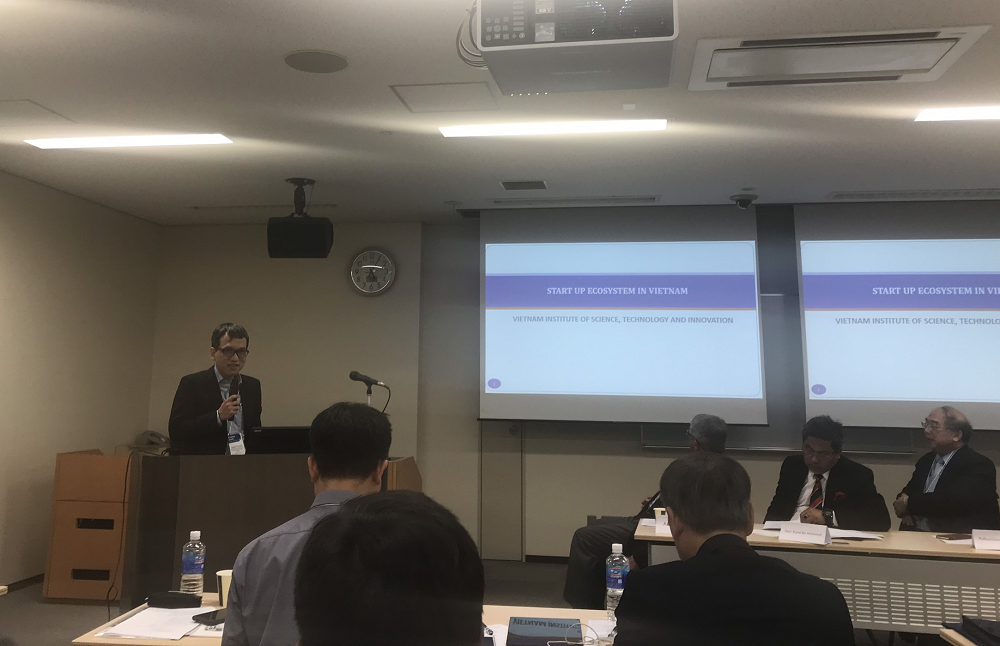
Mr. Nguyen Hoang Hai, Acting Director of Science Management and Training Department, Vietnam Institute of Science Technology and Innovation, Ministry of Science and Technology delivered speech at the Conference
Roundtable discussion from TTO attendees provided short presentations on their institution’s own TTO experience. The representative panelists for Viet Nam was Mr Lam Quang Vinh, Director of Department of Science and Technology, Viet Nam National University of Ho Chi Minh City.
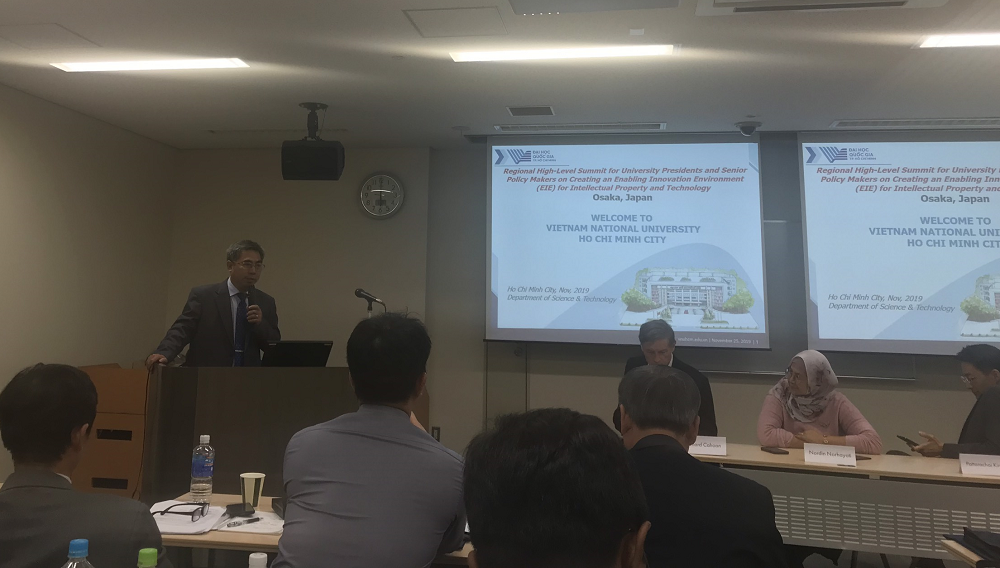
Mr Lam Quang Vinh, Director of Department of Science and Technology, Viet Nam National University of Ho Chi Minh City delivered speech at the Conference
In the closing ceremony, Mr. Richard S. Cahoon summarized the whole content of the conference agreed in the slogan: "Sharing vision, developing purpose, facilitating action". At the same time, he reminded practitioners of technology transfer not to make profit as a top goal but to pursue the ideal of supporting technology for the common good of society.
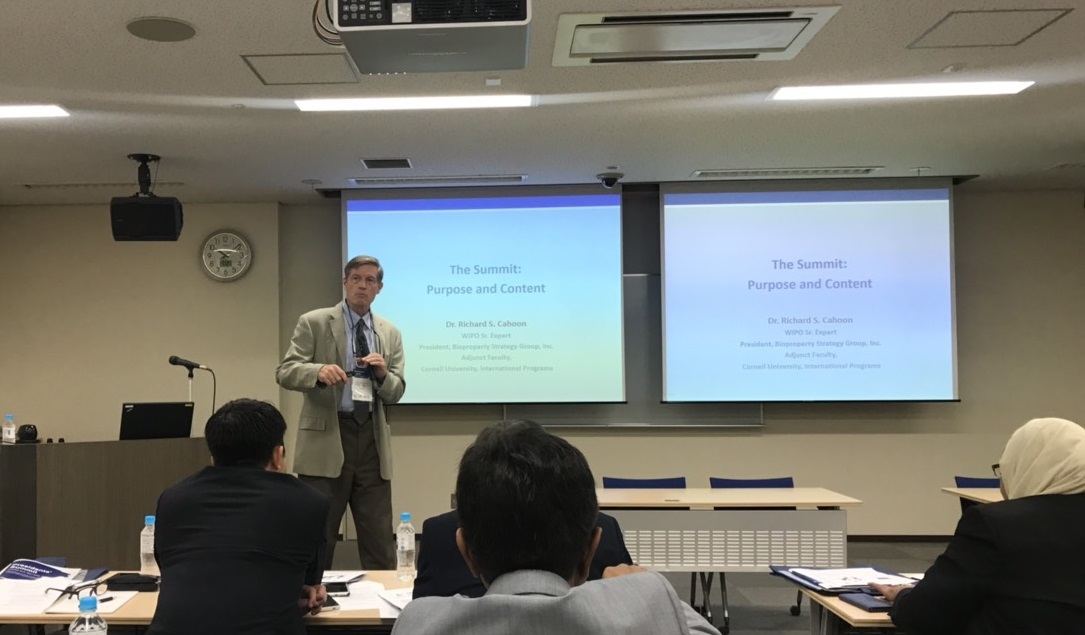
Mr. Richard S. Cahoon with the slogan: "Sharing vision, developing purpose, facilitating action"
On the third day of the conference, delegates visited the Panasonic Museum, Panasonic Corporation, Osaka, Japan. Here, the delegates were told a touching story about Panasonic founder, Mr. Matsushita Konosuke.
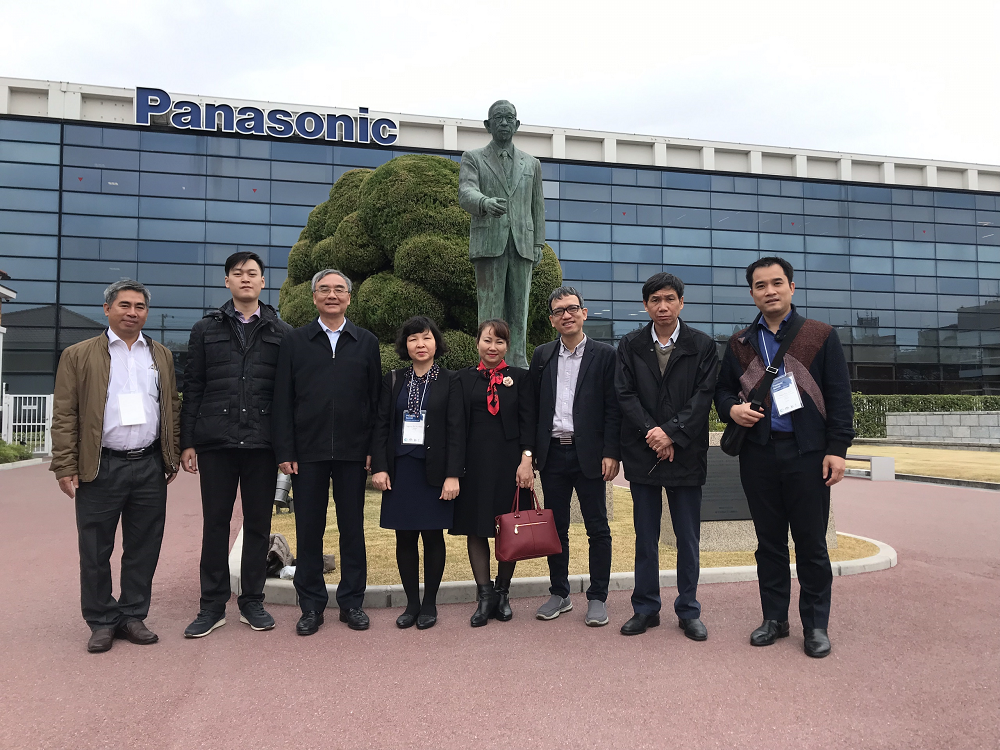
Vietnamese delegation visited Panasonic Museum, Panasonic Corporation, Osaka, Japan
On the sidelines of the conference, WIPO experts also had a private consultation session with representatives from Vietnam on the morning of November 27. During the consultation session, the situations raised by the participants were fully and specifically advised by the experts. Experts also pointed out that the majority of technology transfer contracts in Vietnam are not accompanied by a licensing contract. It is not uncommon in the United States. However, such action always comes with legal risks. WIPO experts not only helped university leaders to remove bottlenecks in technology deployment, but also opened up new directions that university leaders themselves had never thought of.
During the 3 days of the conference, there were enthusiastic discussions and instructions from experts and participants. In this conference, the WIPO expert team introduced in-depth knowledge of intellectual property management skills and technology commercialization, with valuable practical experience especially in evaluation and negotiate technology transfer contracts. Thereby, "challenges that only people in technology transfer can understand" were shared with the direction and encouragement from experts to become a guideline for IP leaders (Hub / Spoke) in Vietnam.
In addition, legal and business advice from experienced experts has partially solved problems in the process of deploying TTOs. Through the Conference, university leaders and policy makers in Vietnam saw a challenging but promising future of TTO network in Vietnam.